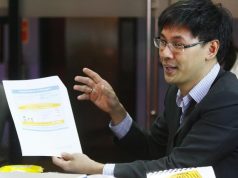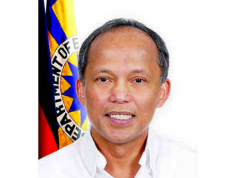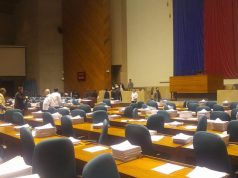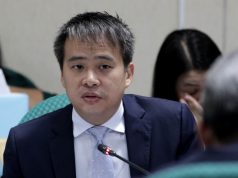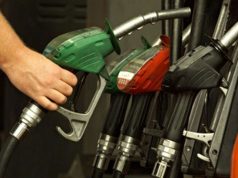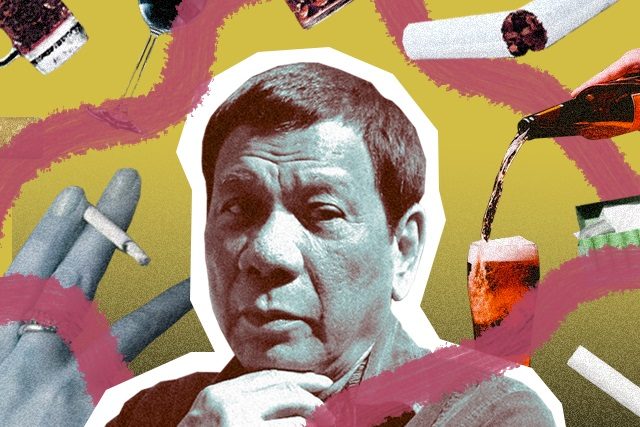
President Rodrigo Duterte has approved the increase of excise taxes on tobacco and alcohol as proposed by the Department of Health and the Department of Finance.
Palace spokesperson Salvador Panelo announced this decision was made on January 8 during Duterte’s 33rd Cabinet meeting, the president’s first for this year.
The tax increase is part of the package 2 of the government’s Comprehensive Tax Reform Program that aims to finance a universal health care system for Filipinos.
On the 33rd Cabinet MeetingPresident Rodrigo Roa Duterte presided his first Cabinet Meeting for the new year yesterday…
Posted by Office of the Presidential Spokesperson on Monday, January 7, 2019
“This is a key public health measure to reduce deaths and disabilities due to tobacco and alcohol consumption and, at the same time, a revenue measure to fund the universal health care program,” Panelo said.
Last December, the House of Representatives approved two bills that sought to increase the excise taxes on cigarettes and alcoholic drinks, House Bill 8677 and House Bill 8618, respectively.
During the meeting, Duterte was also informed of the consequences of using a re-enacted budget, the P3.767-trillon budget last year, for the first quarter of 2019.
Senators reportedly failed to pass the 2019 General Appropriations Bill on time.
Because of this, Panelo said there will be delays in implementing important government affairs. These include salary hikes for government employees, public teachers, policemen and soldiers.
“Delays on the infrastructure programs and delivery of basic social services will also be observed. The upcoming plebiscite on the Bangsamoro law, however, will not be affected as the budget for this was already included in the 2018 budget,” the chief legal counsel said.
Liquor and tobacco
House Bill No. 8677 raises the tax on cigarette packs from P32.50 to P37.50 beginning July 1. This will remain until June 30, 2020.
An amount of P2.50 will then be added to the rate from July 2020 to July 2022 until it reaches to P45 per pack. An additional four percent to the tax rate will be imposed on July 2023 and every year onward.
This is different from the measure filed by Senator Manny Pacquiao last October 2017 or Senate Bill 1599, which sought to amend the Sin Tax Reform Law. Pacquiao proposed the cost of tobacco products to be raised from P30 to P60 per pack.
House Bill No. 8618 presents increases in the following liquor products:
Starting this January, distilled spirits such as brandy and whisky will be imposed with an ad valorem tax (excluding excise and value-added taxes) of 22 percent on the net retail price per proof plus another specific tax of P30 per liter. The specific tax will then increase by P5 annually from this year until the total cost reaches P45 per liter in 2022. From 2023 onward, the specific tax will climb seven percent each year.
Meanwhile for sparkling wines, a 15 percent ad valorem tax per liter will be added plus P650 specific tax per liter. From 2020 onward, the specific tax will also rise seven percent each year.
For still and carbonated wines with 14 percent alcohol and up, it will be P80 per liter in 2019. For still and carbonated wines with 14 percent alcohol or less, it will be P40 per liter in 2019. Both will have a seven percent increase per year starting 2020.
All forms of fermented liquor will be taxed P28 per liter volume in 2019; P32 in 2020; P34 in 2021; and P36 in 2022. Similar to the above-mentioned, its tax will increase by seven percent each year thereafter.
What is package 2?
Before 2018 ended, the government pushed through with the increase in excise taxes on oil products. This fulfilled the goals of the first package of the comprehensive tax reform program known as TRAIN, which stands for Tax Reform for Acceleration and Inclusion.
The increase in fuel excise tax was supposed to start last October, but the government decided to suspend its implementation to cushion the effects of inflation.
This year, Filipinos will face the second package of the program called TRABAHO, which stands for Tax Reform for Attracting Better and High-Quality Opportunities. It is divided into two: the corporate tax phase and the Universal Health Care or UHC phase.
The increase of the excise taxes on liquor and tobacco products falls under the UHC part.
“The objective of the UHC is for all Filipinos to have equitable access to quality and affordable healthcare and to be protected against financial risk. The country should also have a systematic approach and clear delineation of roles of key agencies and stakeholders towards better performance in the healthy system,” the Department of Finance said on its website.




